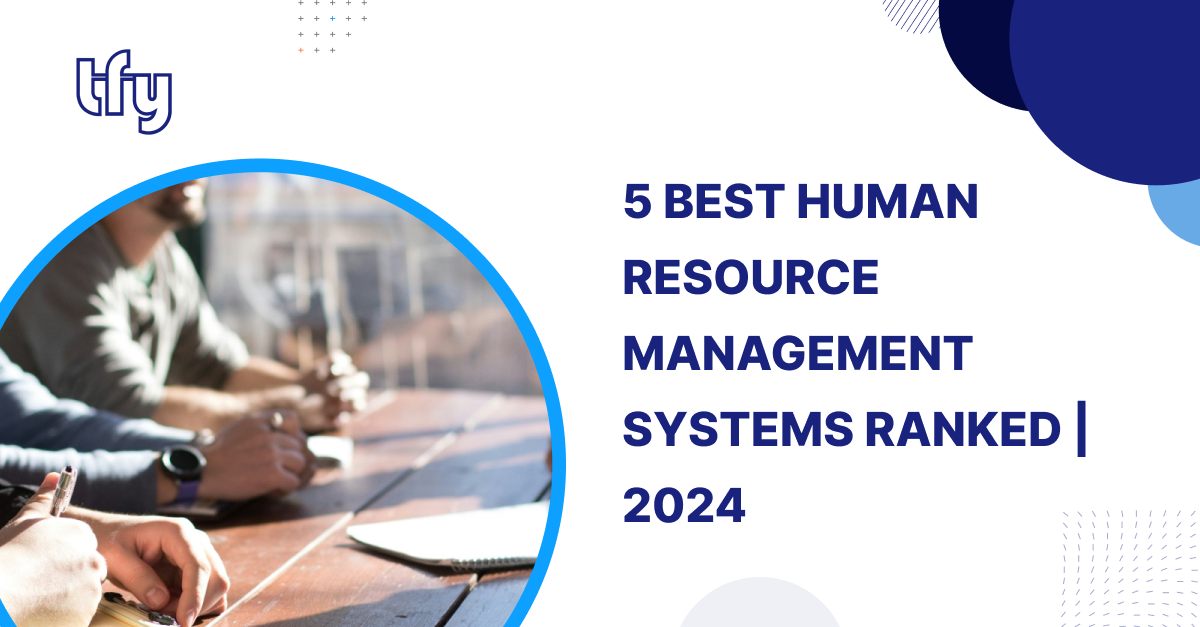
Human Resource Management Systems (HRMS) have become essential in transforming how businesses manage their personnel in the age of digital transformation. Robust HRMS software is more important than ever as firms grapple with the challenges of talent management, regulatory compliance, and operational efficiency.
The adoption of HRMS tools has proven to significantly reduce the time HR teams spend on administrative tasks by up to 40%, allowing them to focus more on strategic initiatives. Moreover, companies using integrated HRMS solutions report a lower turnover rate, illustrating the vital role these tools play in talent retention and organizational stability.
What is HRMS?
An all-inclusive tool for managing and optimizing an organization's human resource operations is the human resource management system (HRMS). Fundamentally, an HRMS facilitates the management of personnel data, expedites HR procedures, and improves decision-making through extensive analytics.
Performance reviews, payroll processing, benefits administration, employee onboarding, and other features are commonly included in HRMS packages. These systems enable improved data management and workflow automation by combining several HR functions onto a strong platform. Key HR indicators and personnel data management are automated by HRMS software, which greatly reduces errors and improves the effectiveness of HR procedures.
Benefits of an HRMS Tool
There are numerous benefits to implementing an HRMS solution, which can completely change any company's HR environment. Here are a few main advantages:
Enhanced HR Process Efficiency
HRMS systems automate payroll processing, attendance monitoring, and employee scheduling, among other essential HR tasks. HR teams can now concentrate on more strategically important duties like talent management and employee engagement as a result of this automation, which lessens their administrative workload.
Enhanced Regulatory Compliance
Keeping up with the constantly evolving employment legislation presents a big problem for HR professionals. HRMS systems have been enhanced with features that help guarantee adherence to national and international laws, reducing legal risks.
Improved Data Management
HRMS platforms' centralized personnel databases offer a single source of truth for all employee data. Better security measures are ensured, easier access for HR specialists is facilitated, and data accuracy is increased as a result of this consolidation.
Making Strategic Decisions
HR directors can gain vital insights into workforce management with the use of HRMS software's sophisticated analytics and reporting features. Making decisions that are in line with the organization's strategic goals is made easier with the use of these insights.
Enhanced Worker Satisfaction
The majority of HRMS systems come with employee self-service portals that let workers handle their personal information and HR-related demands on their own. This autonomy improves worker engagement and satisfaction, which fosters a positive work environment.
5 Best HRMS Tools
After researching the best HRMS products, we've chosen five that are particularly good at improving employee engagement and HR operations. Every tool has distinct advantages and possible disadvantages that are suited to certain organizational requirements. We've included the top platforms below to make it easier for you to decide which is ideal for your company.
1. TFY by Transformify
One of the top HR management platforms is TFY by Transformify, which is renowned for its strong functionality and capacity for international compliance. TFY is a user-friendly system that seamlessly integrates a broad range of HR features to manage the full employee lifecycle. It is designed to serve organizations of all sizes.
2. Paycor
Paycor is a small- to mid-sized business HRMS application that provides compliance assistance, HR administration capabilities, and simplified payroll solutions. It is renowned for its low cost, user-friendliness, and excellent customer support. In order to meet the evolving needs of contemporary enterprises, Paycor also offers a mobile app for managing HR duties while on the road.
3. Deel
Deel is a cutting-edge HR management platform designed for overseeing multinational teams and guaranteeing adherence to international labor regulations. Businesses trying to streamline their international payroll systems and improve HR processes across many geographic regions would find this platform especially useful.
4. BambooHR
Designed for small to mid-sized enterprises, BambooHR is an easy-to-use HRMS solution. It's an excellent option for businesses trying to increase the efficiency of their HR department because it focuses on hiring, onboarding, and employee performance management.
5. Rippling
Businesses can manage employee data, devices, and apps from a single location with the help of Rippling, an HRMS product that blends HR and IT administration in a novel way. Medium-sized to large organizations seeking a comprehensive solution to simplify IT and HR processes will find it especially appropriate.
Emerging Trends in HRMS
Human resource management system (HRMS) technology is always changing. The following five major developments will influence HR technology going forward:
- AI-Driven Automation: To greatly increase operational efficiency, HRMS are increasingly utilizing artificial intelligence to automate payroll management, attendance tracking, and performance reviews, among other essential HR operations.
- Employee Self-Service Tools: Self-service portals, a feature of modern HRMSs, let staff members handle their own data and HR requests, improving data accuracy and empowering them.
- Enhanced Data Security: HRMS is giving enhanced security features first priority in order to protect sensitive employee data and maintain compliance in the face of harsher data protection laws like GDPR.
- Scalable and Modular Design: Modern HRMSs provide modular systems that are easy to customize and modify to meet the changing needs of all kinds of businesses, from startups to major corporations.
How HRMS Will Shape Workplaces Tomorrow
Human resource management systems, or HRMS, are going to have a big impact on how businesses manage their workforces going forward. With the help of statistical insights, HRMS will influence workplaces in the following ways:
Revolutionizing Talent Management
The adoption of HRMS tools is projected to revolutionize talent management. With features like automated candidate matching and advanced applicant tracking systems, HRMS enables organizations to streamline their hiring processes. A recent study by LinkedIn shows that 72% of HR professionals believe that AI can significantly improve talent acquisition and retention.
Streamlining Payroll and Benefits Administration
HRMS streamline payroll processing and benefits administration, reducing errors and ensuring compliance. The Bureau of Labor Statistics notes that automated payroll systems can decrease payroll processing cost by up to 80%, significantly boosting HR efficiency.
Improving Talent Acquisition
A staggering 72.8% of employers report struggles in finding relevant candidates, highlighting a significant gap in talent acquisition, by Manpower Malta. HRMS are increasingly equipped with advanced AI-driven applicant tracking systems and analytics to enhance recruitment strategies, significantly narrowing this gap by matching the right candidates with the right roles.
Boosting Recruitment Technology Investment
With 97% of HR leaders planning to increase their investment in recruiting technology by 2020, HRMS platforms are expected to become more sophisticated. These systems integrate innovative tools for performance management and employee data management, ensuring that businesses can stay ahead in attracting top talent.
Supporting Remote Work
The trend towards remote work is growing, and companies that support this flexibility have 25% lower employee turnover, according to recent studies. Modern HRMS facilitate remote work by providing tools for remote employee onboarding, talent management, and employee engagement, making it easier for businesses to manage a dispersed workforce effectively.
In addition to general HRMS features, certain industries need specialized tools to manage their workforce effectively. For example, field service businesses such as construction or maintenance teams benefit from employee clock apps with GPS to track staff locations and attendance. Retail operations may use digital shift scheduling software, while healthcare organizations often rely on credential and compliance tracking systems to ensure staff certifications are up to date. These sector-specific tools complement HRMS platforms by improving accountability, streamlining workflows, and optimizing productivity for the unique needs of each industry.
Enhancing Employee Onboarding and Engagement
Approximately 53% of HR specialists are aware that a better onboarding process can greatly raise employee engagement. HRMS help with this by simplifying HR procedures, such as automating onboarding processes and giving new recruits access to a full range of HR tools and services from the start.
HRMS are revolutionizing not just HR operations but also the hiring, onboarding, and long-term engagement phases of the employee lifecycle. This is why they are critical for future-proofing firms in a workplace that is changing quickly.
HRMS tools are essential for modernizing workplaces, offering significant improvements in talent management, operational efficiency, and employee engagement. By integrating advanced features like AI and comprehensive data analytics, HRMS not only streamline daily HR tasks but also enhance strategic decision-making. As businesses continue to adapt to digital transformation, investing in HRMS is key to maintaining competitive advantage and fostering a productive, satisfied workforce. Embracing these tools means not just keeping pace with current trends but setting the stage for future success.



